Health Care > EXAM > HESI RN MENTAL HEALTH EXAM TEST BANK /20 Exam Sets, 1500+ Questions & Answers/Latest 2022/HESI RN ME (All)
HESI RN MENTAL HEALTH EXAM TEST BANK /20 Exam Sets, 1500+ Questions & Answers/Latest 2022/HESI RN MENTAL HEALTH EXAM TEST BANK /20 Exam Sets, 1500+ Questions & Answers/NewlyUpdated
Document Content and Description Below
1. A 30-year-old sales manager tells the nurse, "I am thinking about a job change. I don't feel like I am living up to my potential." Which of Maslow's developmental stages is the sales manager attemp... ting to achieve? A. Self-Actualization. Correct B. Loving and Belonging. C. Basic Needs. D. Safety and Security. Self-actualization is the highest level of Maslow's development stages, which is an attempt to fulfill one's full potential (C). (B) is identifying support systems. (C) is the first level of Maslow's developmental stages and is the foundation upon which higher needs rest. Individuals who feel safe and secure (D) in their environment perceive themselves as having physical safety and lack fear of harm. 2. The nurse observes a client who is admitted to the mental health unit and identifies that the client is talking continuously, using words that rhyme but that have no context or relationship with one topic to the next in the conversation. This client's behavior and thought processes are consistent with which syndrome? A. Dementia. B. Depression. C. Schizophrenia. Correct D. Chronic brain syndrome. The client is demonstrating symptoms of schizophrenia (C), such as disorganized speech that may include word salad (communication that includes both real and imaginary words in no logical order), incoherent speech, and clanging (rhyming). Dementia (A) is a global impairment of intellectual (cognitive) functions that may be progressive, such as Alzheimer's or organic brain syndrome (D). Depression (C) is typified by psychomotor retardation, and the client appears to be slowed down in movement, in speech, and would appear listless and disheveled. 3. A homeless person who is in the manic phase of bipolar disorder is admitted to the mental health unit. Which laboratory finding obtained on admission is most important for the nurse to report to the healthcare provider? A. Decreased thyroid stimulating hormone level. Correct B. Elevated liver function profile. C. Increased white blood cell count. D. Decreased hematocrit and hemoglobin levels. Hyperthyroidism causes an increased level of serum thyroid hormones (T3 and T4), which inhibit the release of TSH (A), so the client's manic behavior may be related to an endocrine disorder. (B, C, and D) are abnormal findings that are commonly found in the homeless population because of poor sanitation, poor nutrition, and the prevalence of substance abuse. 4. An adult male client who was admitted to the mental health unit yesterday tells the nurse that microchips were planted in his head for military surveillance of his every move. Which response is best for the nurse to provide? A. You are in the hospital, and I am the nurse caring for you. B. It must be difficult for you to control your anxious feelings. C. Go to occupational therapy and start a project. Correct D. You are not in a war area now; this is the United States. Delusions often generate fear and isolation, so the nurse should help the client participate in activities that avoid focusing on the false belief and encourage interaction with others (C). Delusions are often well-fixed, and though (A) reinforces reality, it is argumentative and dismisses the client's fears. It is often difficult for the client to recognize the relationship between delusions and anxiety (B), and the nurse should reassure the client that he is in a safe place. Dismissing delusional thinking (D) is unrealistic because neurochemical imbalances that cause positive symptoms of schizophrenia require antipsychotic drug therapy. 5. The nurse is assessing a client's intelligence. Which factor should the nurse remember during this part of the mental status exam? A. Acute psychiatric illnesses impair intelligence. B. Intelligence is influenced by social and cultural beliefs. Correct C. Poor concentration skills suggests limited intelligence. D. The inability to think abstractly indicates limited intelligence. Social and cultural beliefs (B) have significant impact on intelligence. Chronic psychiatric illness may impair intelligence (A), especially if it remains untreated. Limited concentration does not suggest limited intelligence (C). Difficulties with abstractions are suggestive of psychotic thinking (D), not limited intelligence. 6. At a support meeting of parents of a teenager with polysubstance dependency, a parent states, "Each time my son tries to quit taking drugs, he gets so depressed that I'm afraid he will commit suicide." The nurse's response should be based on which information? A. Addiction is a chronic, incurable disease. B. Tolerance to the effects of drugs causes feelings of depression. C. Feelings of depression frequently lead to drug abuse and addiction. D. Careful monitoring should be provided during withdrawal from the drugs. Correct The priority is to teach the parents that their son will need monitoring and support during withdrawal (D) to ensure that he does not attempt suicide. Although (A and C) are true, they are not as relevant to the parent's expressed concern. There is no information to support (B). 7. The wife of a male client recently diagnosed with schizophrenia asks the nurse, "What exactly is schizophrenia? Is my husband all right?" Which response is best for the nurse to provide to this family member? A. It sounds like you're worried about your husband. Let's sit down and talk. B. It is a chemical imbalance in the brain that causes disorganized thinking. Correct C. Your husband will be just fine if he takes his medications regularly. D. I think you should talk to your husband's psychologist about this question. The nurse should answer the client's question with factual information and explain that schizophrenia is a chemical imbalance in the brain (B). (A) is a therapeutic response but does not answer the question, and may be an appropriate response after the nurse answers the question asked. Although (C) is likely true to some degree, it is also true that some clients continue to have disorganized thinking even with antipsychotic medications. Referring the spouse to the psychologist (D) is avoiding the issue; the nurse can and should answer the question. 8. A young adult male client, diagnosed with paranoid schizophrenia, believes that world is trying poison him. What intervention should the nurse include in this client's plan of care? A. Remind the client that his suspicions are not true. B. Ask one nurse to spend time with the client daily. Correct C. Encourage the client to participate in group activities. D. Assign the client to a room closest to the activity room. [Show More]
Last updated: 3 years ago
Preview 1 out of 400 pages
.png)
Buy this document to get the full access instantly
Instant Download Access after purchase
Buy NowInstant download
We Accept:

Reviews( 0 )
$10.00
Can't find what you want? Try our AI powered Search
Document information
Connected school, study & course
About the document
Uploaded On
Aug 14, 2022
Number of pages
400
Written in
Additional information
This document has been written for:
Uploaded
Aug 14, 2022
Downloads
0
Views
63


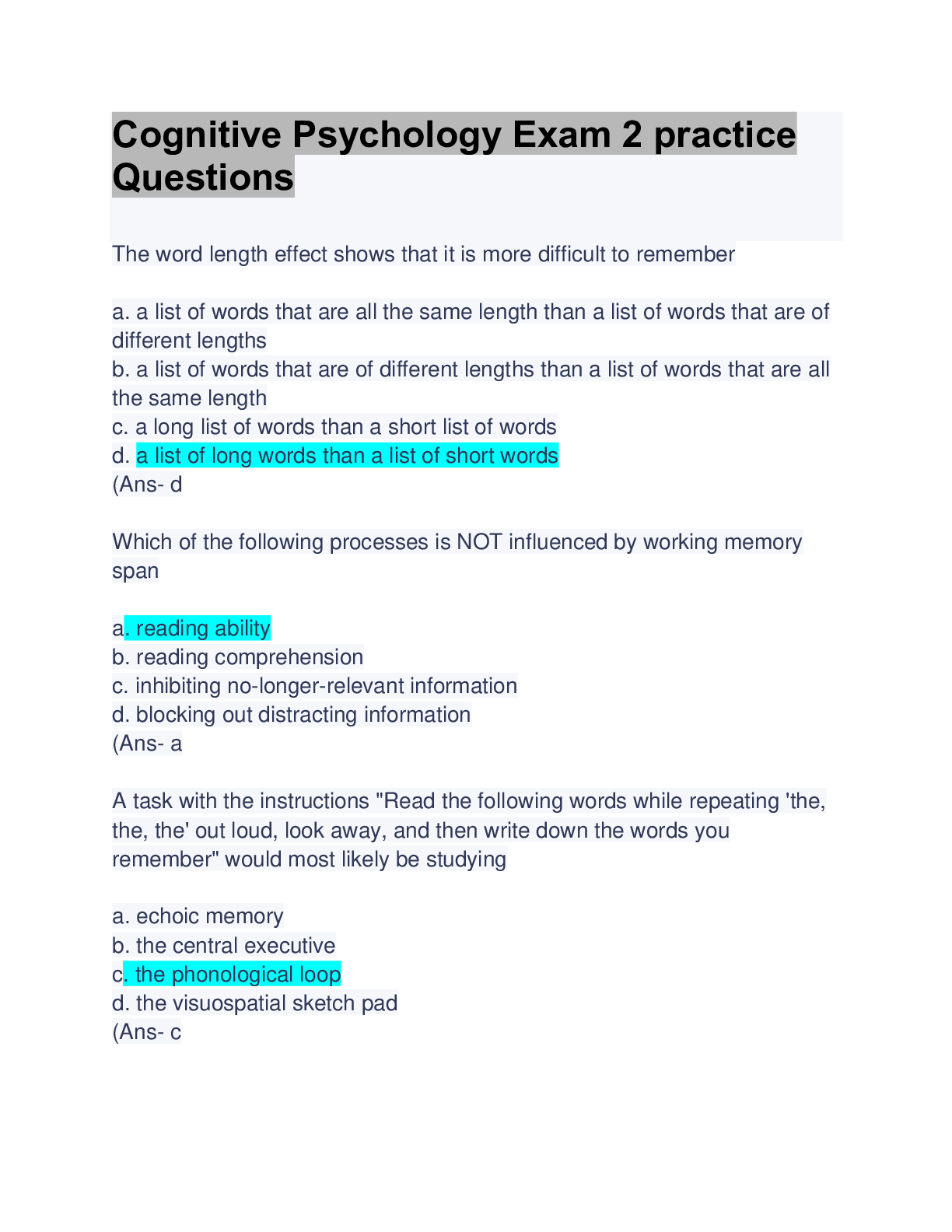
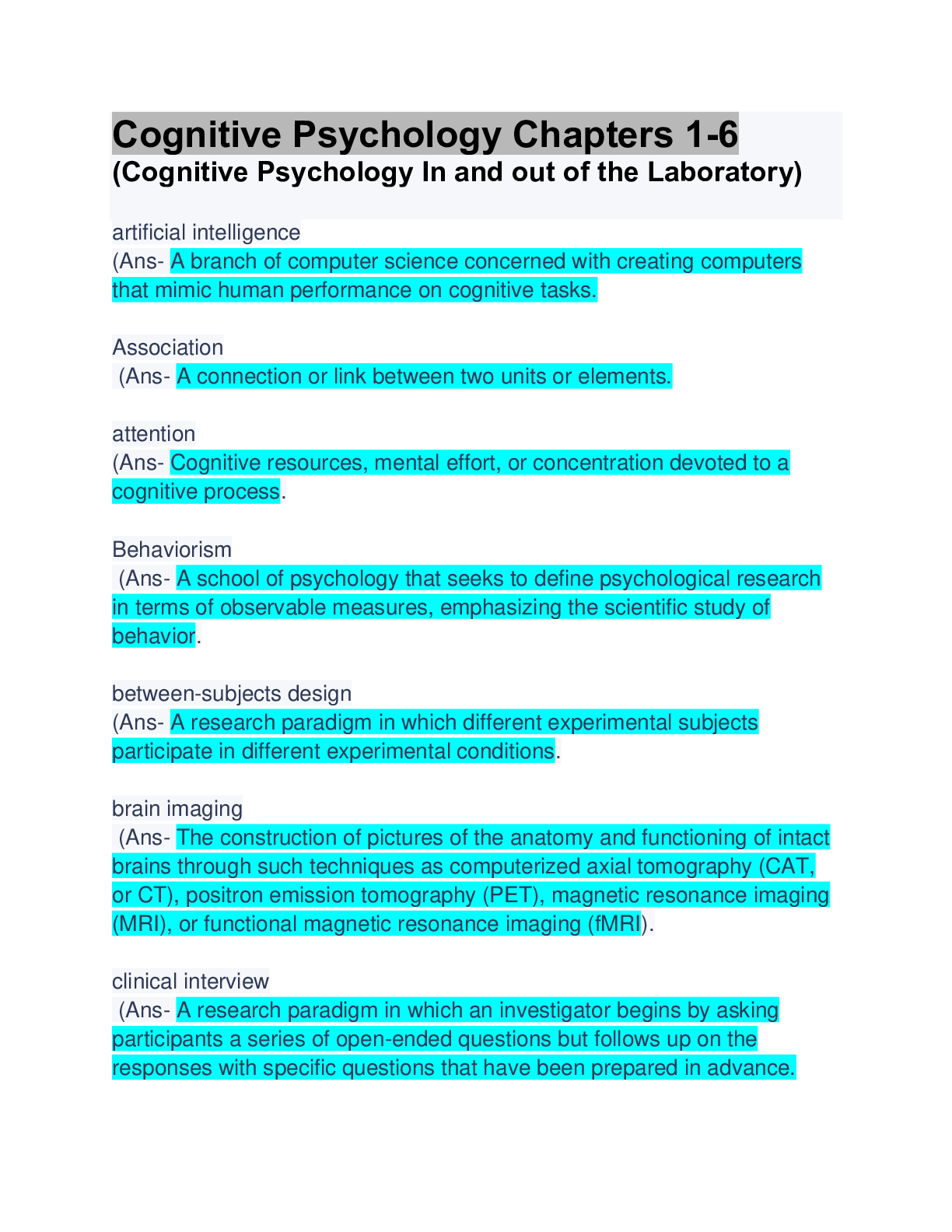
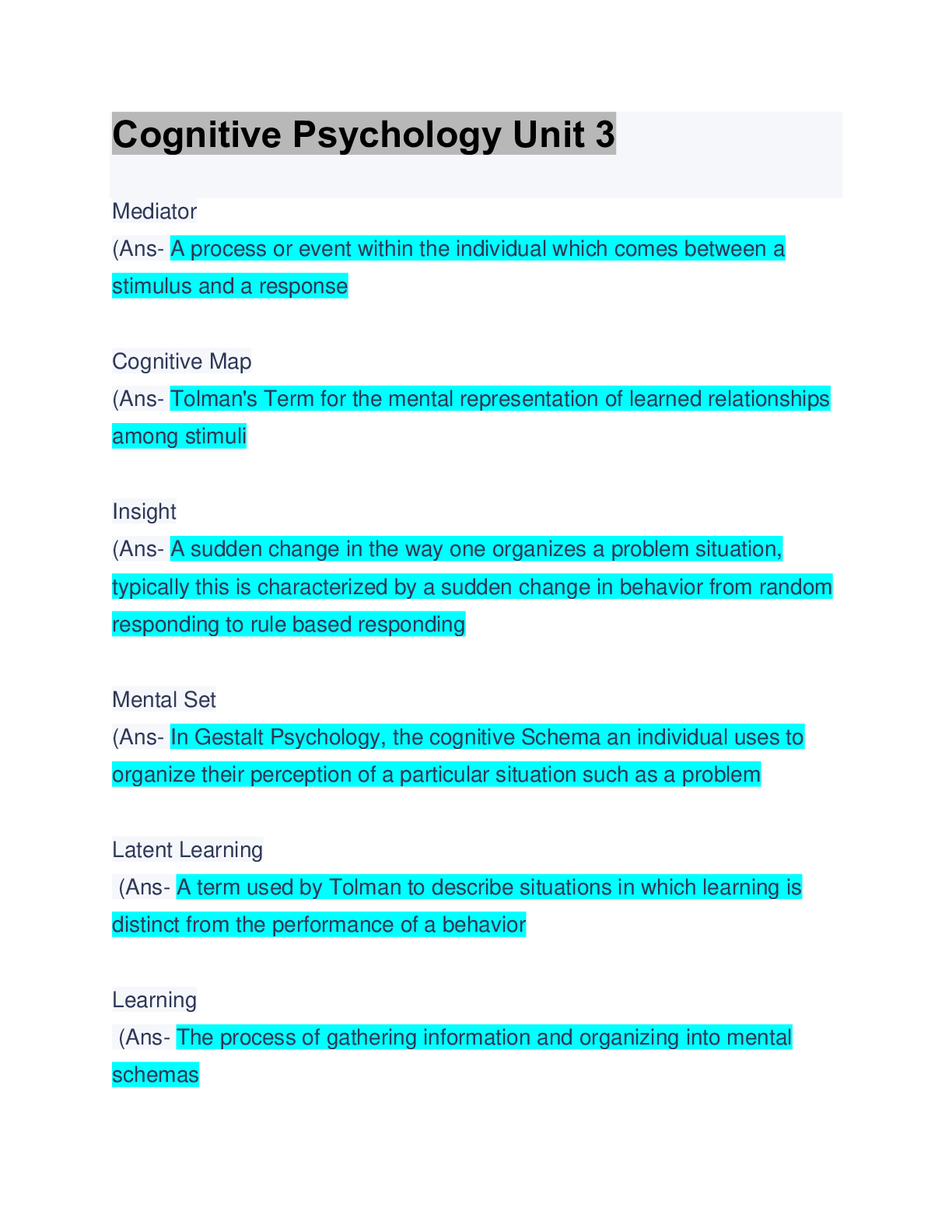



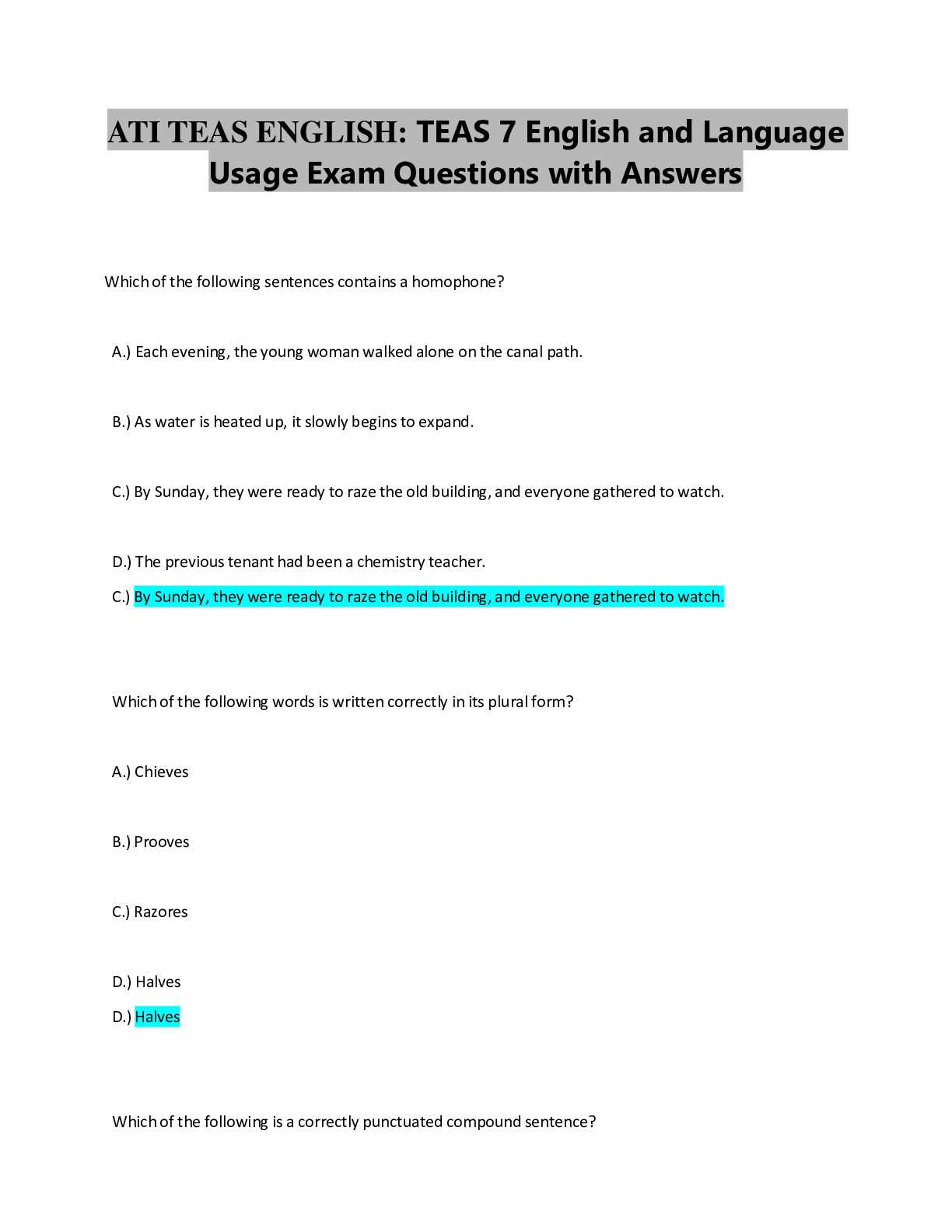




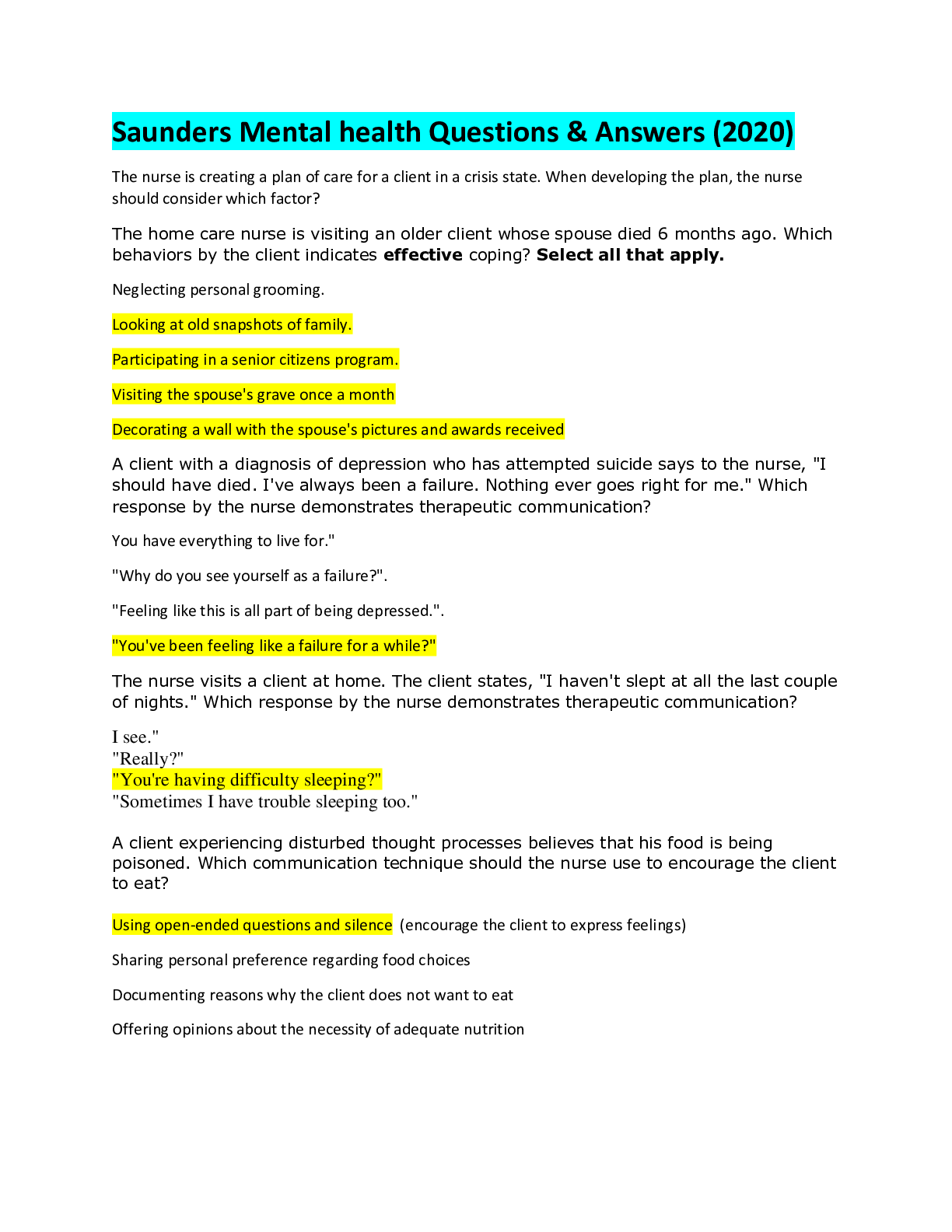




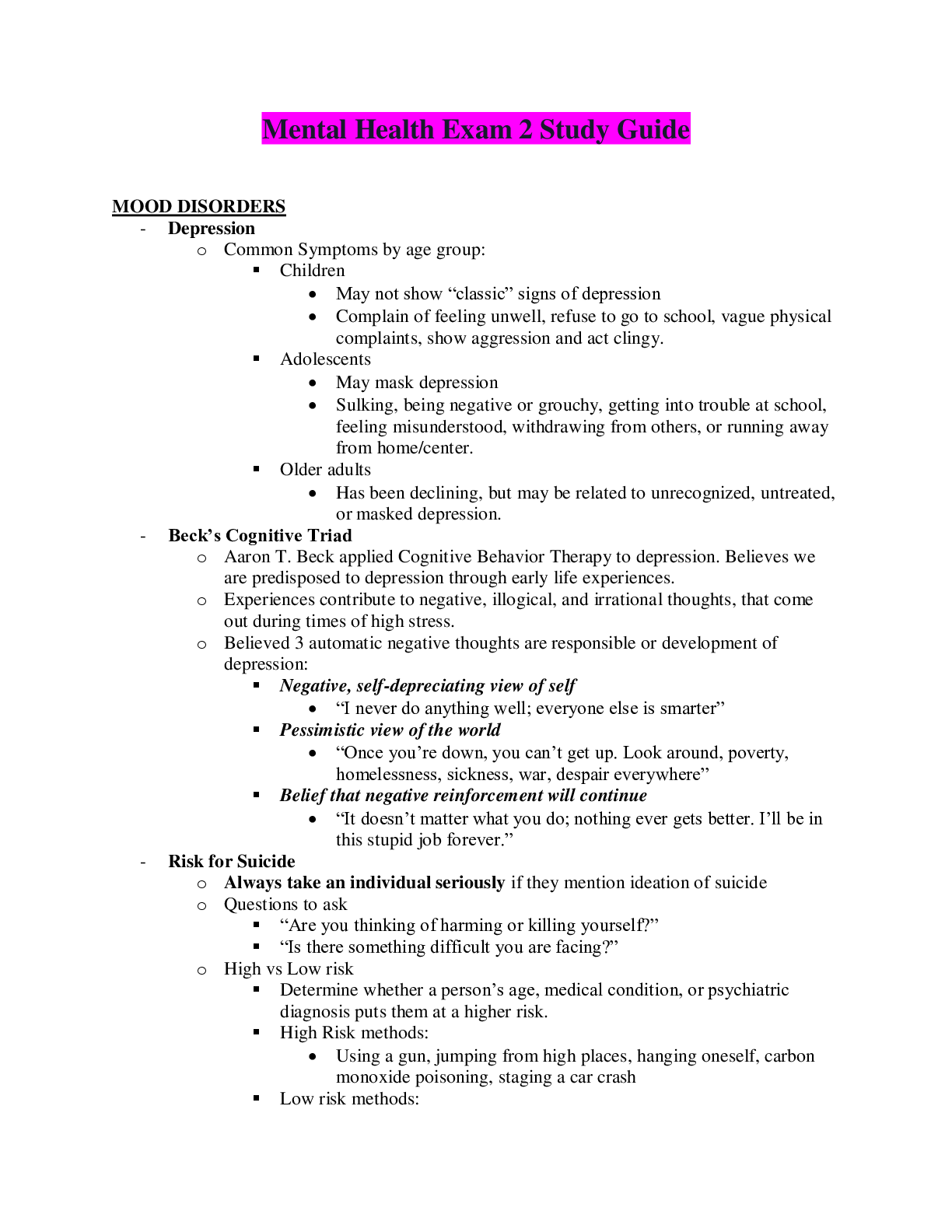

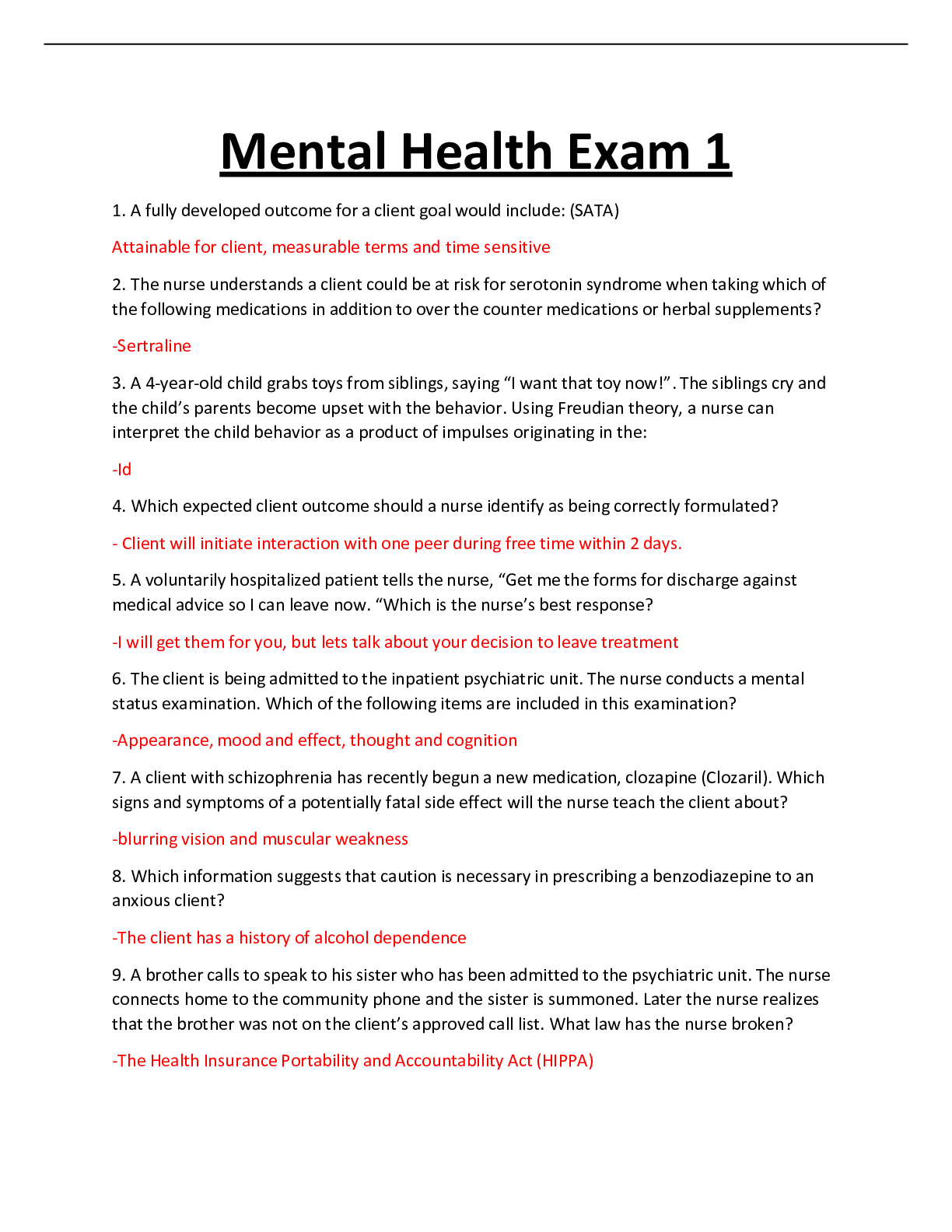
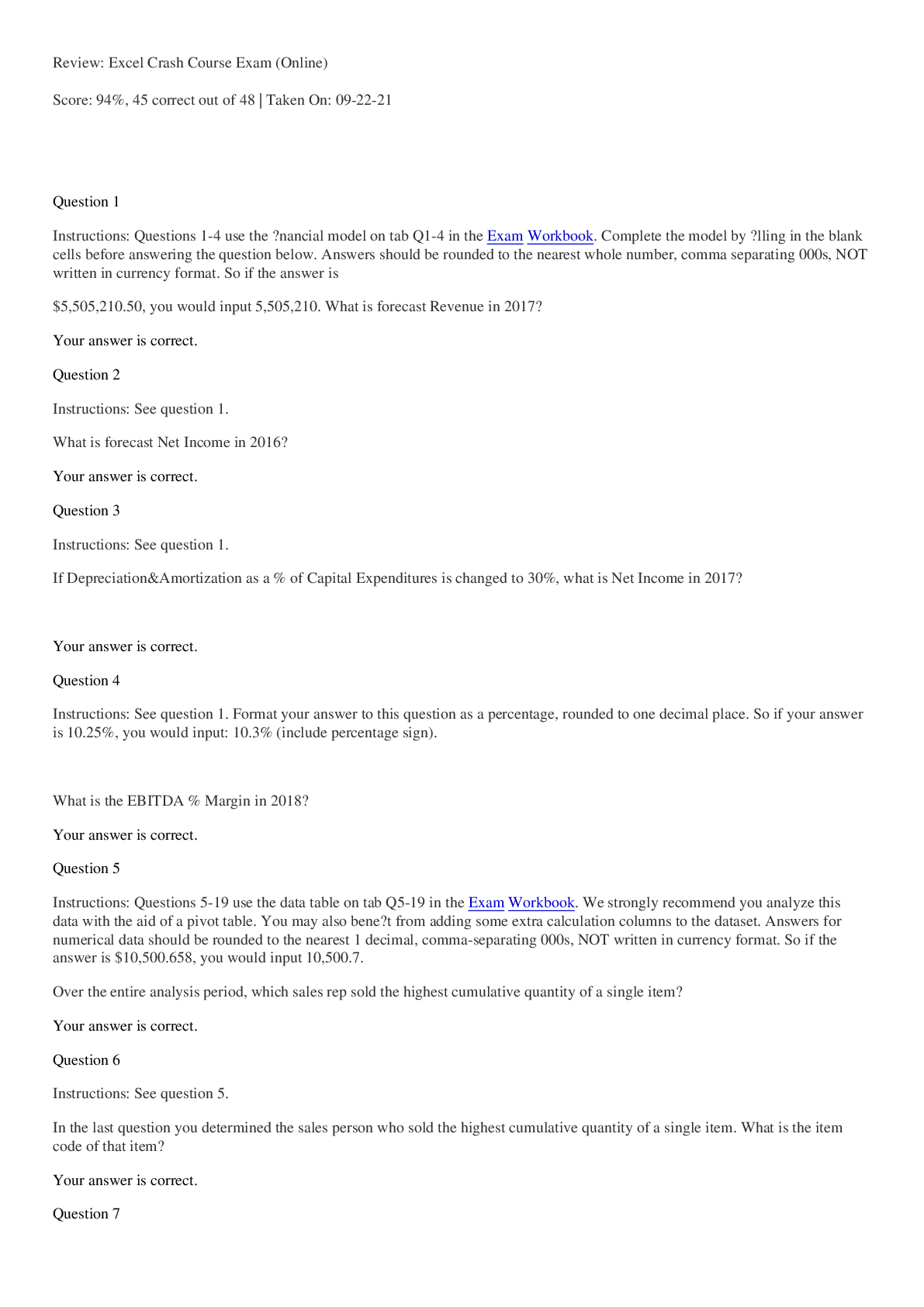
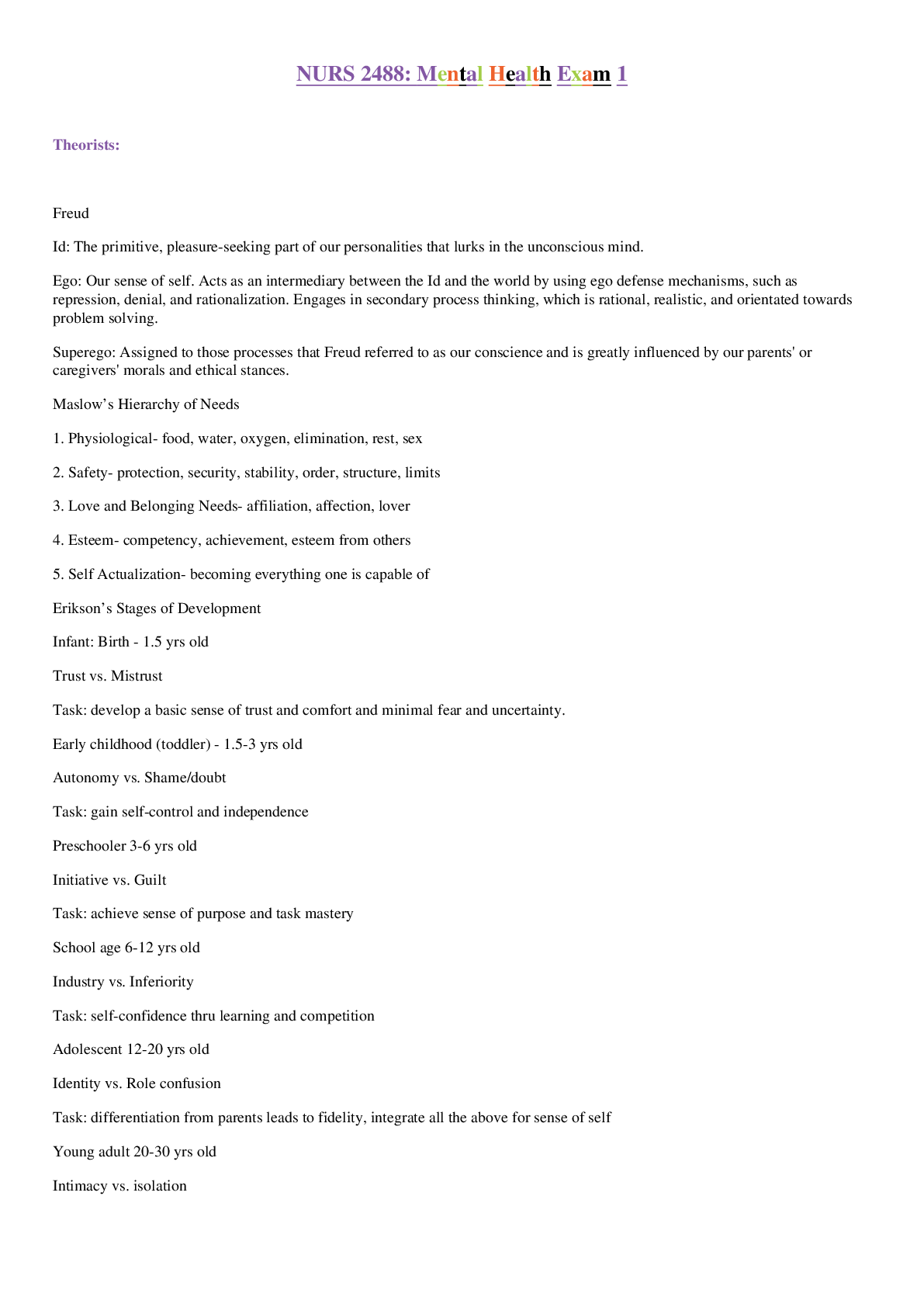
 (1).png)

